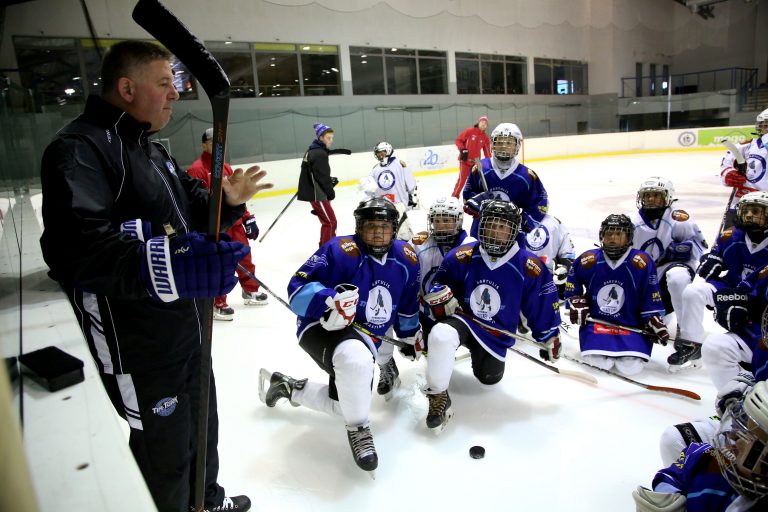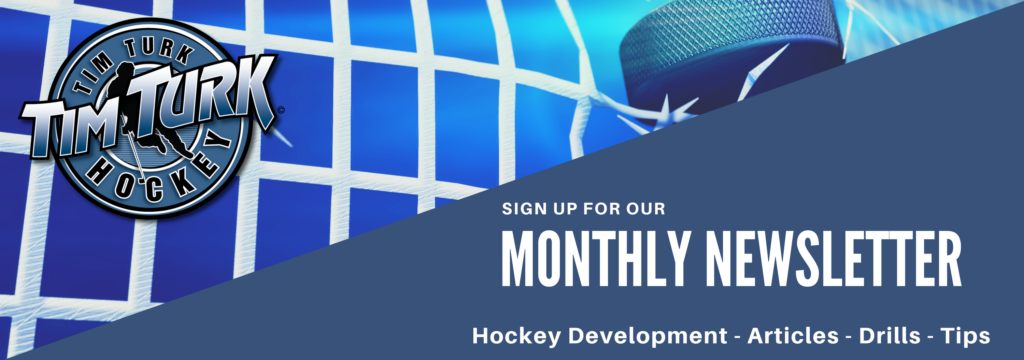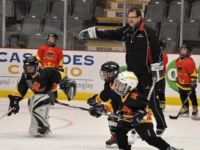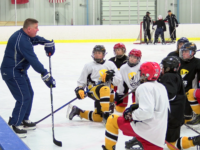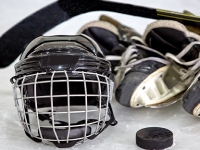There are two main factors that contribute to the success of a hockey team.
The first is the players. Each player on the team needs to be focused, dedicated, and willing to do what it takes to bring home wins. If the players on a hockey team are synergized, it’s much more likely that they’ll win games compared to teams that don’t fully employ teamwork.
The second, equally important factor, is the coach. An all-star team with a subpar coach typically won’t end up being successful because they’ll lack proper direction. While there are many skills you need to be a great coach, one of the most important ones is being able to run a great practice. As coaches and players know, all the leg-work for a successful team happens in practice.
It can be hard, though, to know how to improve the quality of your practices.
I have the drills, I have the pucks, and I’m pretty good at assessing my players’ strengths and weaknesses. What else do I need?
As it turns out, there’s a lot more that a coach needs to run an effective hockey practice.
Do Some Off-Ice Studying
To run a better practice, you need to be a better coach. Simple. Stepping up your coaching game requires you to delve into resources off the ice so you can return to your team with new, effective material. Here are a few things you can help!
Books & Videos
There are hundreds of hockey books that have been specifically written for coaches, and all of them are loaded with useful information. Some great examples are: The Hockey Coaching Bible by Joe Bertagna, Behind the Bench by Craig Custance and Sidney Crosby, and Coaching Hockey for Dummies by Don MacAdam and Gail Reynolds.
There are also loads of free coaching resources in the form of videos. Simply browsing YouTube looking for coaching tips can yield outstanding improvement. We’re in the heart of the age of free information; all you need to do is use it.
Attend Seminars
On occasion, a hockey coaching conference or seminar will be hosted nearby. These seminars are typically multi-day events that are jam-packed with information for coaches. They include workshops, talks, and an important chance to network with other coaches and important people in the industry.
While coaching seminars usually run a high price, attending one can give you invaluable information and tools to improve your practices. Your organization may also cover the cost if you inquire.
Follow Coaching Websites
There are many websites that are entirely dedicated to helping hockey coaches run better practices and improve their teams. Sites like thecoachessite.com, icehockeysystems.com, and, of course, timturkhockey.com are packed with coaching resources.
First, make use of the free information that these sites offer. Then, make sure to routinely check on those websites to see if they’ve posted any new material. Most coaching websites also offer premium, paid material, so if you’re particularly impressed by a certain site, don’t hesitate to shell out a few bucks for the higher-quality content.
Compile a Book of Drills
One of the most important things to do as a hockey coach, no matter the level of your team, is to compile your own repertoire of drills. You should have multiple drills available to work on any hockey skill imaginable. That way, you can assess what your team needs to improve on most and attack those skills directly. Having a wide variety of drills at your fingertips ensures that your players won’t get bored, either.
Drills can be found in any of the formats previously mentioned—-in drill books, in YouTube videos, or on coaching websites. Take the time to find and gather a variety of quality drills —-it can end up yielding worthwhile results and your organization may also cover this as well.
Network with Other Coaches
One of the most underrated methods of improving your hockey practices is networking with other coaches.
No coach is perfect at every aspect of their job. While you will have resources and knowledge in your strong areas, other coaches are sure to have expertise in areas you’re not as strong with.
Networking with other coaches allows you to share materials, information, tactics, and news in large groups so that you’ll have more insight on how to improve your practices and as a coach in general.
Bring in the Big Guns
Apart from working on your own knowledge, another option you have as a coach to improve the effectiveness of your practices is to bring in an expert: a specialized development coach that’ll work with your team and teach them everything they know about a certain skill.
There are hockey development coaches for just about any skill you can think of—-skating, shooting, stickhandling, puck protection, goaltending, etc. Within the bounds of the budget you’re given by your organization, you can invite specialist coaches to your practices as often as you want.
If your team has a clear weakness (like shooting, for example), hiring a specialist coach is a great option. Their expertise will allow your team to patch up said weakness in no time, giving them the best chance to dominate the rest of the season. Plus, if you occasionally bring in skills coaches, your team will look forward to those practices because they’ll involve a break in the usual routine. They’ll get to learn from a fresh mind and participate in unique exercises and drills, so your team will be excited and attentive.
Other Tips
Along with the suggestions of studying off-ice and bringing in specialty instructors, here are a few basic tips to ensure your hockey practice is effective and runs smoothly:
- Don’t use ice time for stretching. Make sure your players are stretching in the changeroom before practice begins so you can maximize the on-ice practice time.
- Avoid forming routines in your practice. If you repeat the same drills, your players will get complacent and will lose focus. Vary the exercises so that your players stay focused and engaged.
- Make sure you always have plenty of pucks available. For a normal-sized team, having over 50 pucks, probably closer to 100, is a safe bet.
- Give plenty of positive and specific feedback. Players of all ages respond better and learn faster when their criticism is at least somewhat positive and specific.
- Relate what your players learn in practice to their games. That way, when your players are faced with a similar in-game situation, they’re more likely to apply what they learned in practice.
These tips will help build the perfect coaching toolbox that you can use to run the best, most effective practices. Now, it’s up to you to get the tools.
Put in the study hours off the ice by reading books, attending seminars, collecting drills, and networking. If your team has the budget, bring in some specialty instructors to pass on their refined, specific knowledge for their area of expertise. And, when in doubt, look at the basics of how your practice runs to see if there are and minor improvements you could make.
After that, all you need to do is focus on leading your team to victory!


